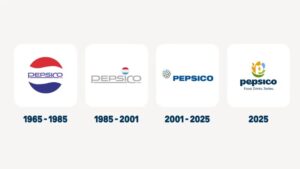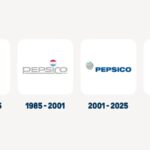When Virat Kohli ended his eight-year partnership with global sportswear giant PUMA, the move wasn’t just about switching logos. Instead of pursuing another big-ticket endorsement, Kohli stunned the industry by backing a homegrown startup: Agilitas Sports. His decision signals more than just a career pivot—it could redefine the future of athlete-brand relationships in India.
Kohli, India’s most valuable celebrity brand according to Duff & Phelps, has long been a powerhouse on and off the field. Forbes ranked him among the highest-paid athletes globally in 2018, and by 2025, his brand value was projected to surpass international icons like Lionel Messi and Stephen Curry, reaching $14.5 million.
So why would a star of Kohli’s stature turn down a ₹300-crore renewal from PUMA? The answer lies in a growing global shift—from endorsements to ownership.
From Brand Ambassador to Brand Builder
Athletes today are no longer satisfied being just the face of a brand—they want a hand in shaping it. Kohli’s investment in Agilitas is part of a larger movement where athletes are stepping into entrepreneurial roles, becoming co-creators and stakeholders rather than passive endorsers.
Mazhar Gadiwala, VP of Sports at Togglehead, explains this shift: “Athletes are no longer just endorsers—they’re building legacies. Kohli isn’t just a brand ambassador anymore; he’s a partner with skin in the game.”
This trend mirrors global moves by stars like Roger Federer, LeBron James, Naomi Osaka, and Cristiano Ronaldo. Federer co-developed the ‘THE ROGER’ line with Swiss brand On, propelling the company to an IPO. LeBron James helped Nike dominate the basketball market with the ‘LeBron’ series and launched his own platform, Uninterrupted, to give athletes a stronger voice. Ronaldo’s CR7 brand extends across clothing, fragrance, and footwear, while Naomi Osaka’s agency, Niji Sports, aims to empower athletes of color.
Back in India, Kohli is now walking a similar path—rejecting short-term gains for long-term equity and creative control.
Agilitas: More Than Just a Bet
Kohli’s decision to back Agilitas is not a gamble—it’s a calculated move. The startup, led by former PUMA India MD Abhishek Ganguly, has already acquired Mochiko Shoes (India’s largest sports footwear manufacturer) and raised ₹600 crore in funding within a year. It’s positioning itself as a serious challenger in a market expected to cross $20 billion by the end of the decade.
What drew Kohli in? According to Gadiwala, “He’s not just investing in a brand—he’s investing in vision and leadership. Agilitas gives him creative and strategic control over the One8 brand and a platform to scale it globally. It’s a classic built-in-India-for-the-world story.”
Independent sports advisor Tenzing Niyogi even likens Kohli’s move to Michael Jordan’s game-changing Nike partnership, which birthed the Air Jordan empire and permanently reshaped the business of sport. “This could be the Jordan moment for Indian sports business,” Niyogi said. “Kohli is reshaping the narrative for Indian athletes by showing that you can be both a champion and a founder.”
What This Means for Legacy Brands
Kohli’s exit leaves a sizable void for PUMA—both commercially and emotionally. “Athletes like Kohli represent more than performance—they represent trust and emotional resonance,” said Gadiwala. Rebuilding that kind of equity won’t be easy in today’s storytelling-driven brand environment.
Niyogi agrees, noting that consumers now align more with personalities than products. “When an athlete launches their own venture, they’re seen as genuine and mission-driven. It builds stronger connections.”
This shift also raises broader questions about the relevance of traditional exclusive endorsement deals.
Is Brand Exclusivity Becoming Obsolete?
For decades, exclusivity was the holy grail of athlete-brand partnerships. But as athletes evolve into entrepreneurs, creators, and advocates, that model is being questioned.
Neerav Tomar, MD and CEO of IOS Sports, argues that exclusivity can be limiting: “It restricts athletes from expressing their full range of interests. The next generation of athletes wants partnerships that reflect their values and ambitions.”
However, others believe exclusivity still has a vital role. Abhishek Sharma, Managing Partner at ISG, points to iconic collaborations—Air Jordan and Nike, Nadal and Nike, Messi and Adidas—as evidence that exclusivity, when paired with equity, can create enduring cultural legacies.
“In India, where sports—especially cricket—is a cultural force, exclusivity gives clarity and emotional depth,” Sharma said. “It’s not outdated; it just needs to be more strategic and purpose-driven.”
The Future of Sports Marketing in India
The lines between athlete, entrepreneur, and ambassador are blurring—and the Indian market is taking note.
Sharma envisions a hybrid future, where legacy brands adopt flexible, equity-based models while athlete-led ventures continue to rise. “The playbook is changing,” he said. “Watch for more VC-backed athlete brands and equity-driven partnerships in the coming year.”
Tomar sees this evolution as a win-win opportunity. “Athletes and brands shouldn’t see each other as competitors,” he said. “There’s space for collaboration—be it limited-edition drops or co-owned product lines. The key is mutual respect and shared purpose.”
As India’s sports and entrepreneurial ecosystems mature, a clear shift is underway: the era of athletes as mere endorsers is giving way to the era of athletes as brand architects. Kohli’s pivot to Agilitas marks not just a personal evolution, but a cultural one—where Indian athletes can now build empires, not just careers.













